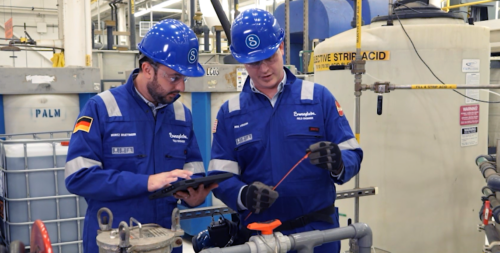Synthetic lubrication study is just a click away
Every three years, PLANT ENGINEERING publishes a comprehensive study of synthetic lubrication used in every kind of plant environment. The 2003 study is still receiving clicks at www.plantengineering.com as plant engineers and plant managers look for suppliers who offer synthetic lubrications. As senior editor Joe Foszcz noted in 2003: "Synthetics are the logical lubricant choice in a number of...
Every three years, PLANT ENGINEERING publishes a comprehensive study of synthetic lubrication used in every kind of plant environment. The 2003 study is still receiving clicks at www.plantengineering.com as plant engineers and plant managers look for suppliers who offer synthetic lubrications.
As senior editor Joe Foszcz noted in 2003: “Synthetics are the logical lubricant choice in a number of applications, including when:
Equipment failure or excessive downtime is attributed to ineffective lubrication products or practices
Application demands are beyond the capabilities of mineral-based petroleum products
High or low temperatures (-75 F to +500 F) are encountered.
“Man-made synthetics reduce wear by providing a more robust lubricant film in the load zone or nonconforming surface of bearings, gears, compressors, rotary shaft seals, vacuum and diaphragm pumps, valves and hydraulic systems.
Reduced maintenance, parts replacement and energy costs often result. Synthetic lubricants also provide long life because of their enhanced thermal and oxidative stability, which reduce the formation of sludge, corrosion and deposits.”
Industry consolidation and new product offerings make the 2006 Guide to Synthetic Lubricants a valuable tool for the plant floor.
The 2006 study will be published in June, and any suppliers who offer synthetics can list their information, which will be available both in print and online.
Send your company information to Pat Mustari at pmustari@reedbusiness.com to get your link to the electronic survey.
Do you have experience and expertise with the topics mentioned in this content? You should consider contributing to our CFE Media editorial team and getting the recognition you and your company deserve. Click here to start this process.



